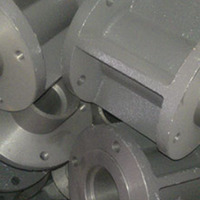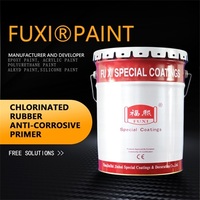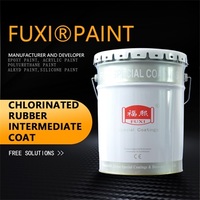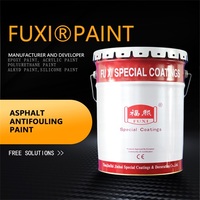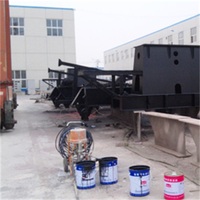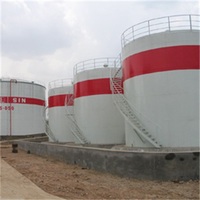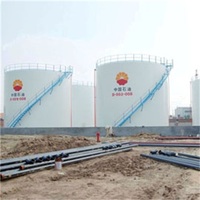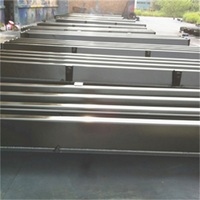FUXI ® EPOXY PAINT
- Packaging
- N/A
- Delivery
- N/A
Specifications
Epoxy paints are the most important category of anti-corrosion coating products.
They are widely used in:
the hull of the ship, deck (including skid board and flight deck, etc.), ballast tanks and cargo tanks;
the superstructure of the oil platform, ground pipelines, buried pipelines and submarine pipelines, etc.;
the inner walls of pipes and storage tanks with media of drinking water, wine, food, etc.;
industrial floor;
bridges and so on.
Normal atmospheric temperature curing epoxy paints are the most commonly used. They can be combined into anti-rust primers, high build coatings, novolac coatings, topcoats and glass flake coatings,
which are used on steel and concrete surfaces.
Epoxy paints have very strong adhesion with substrates. The cured epoxy paint film has a very compact molecular structure. Its benzene ring and ether bond are stable, so it can be used in a
chemical environment.
How to Apply Epoxy Paint
Step 1. Make sure the surface is clean
The first step is to ensure that the area to which the epoxy will be applied is clean. After ensuring that the surface is clean, use more paper towels or rags to dry it. Try to ensure that the wall
is absolutely dry, as any moisture will affect the performance of the epoxy paint.
Step 2. Add epoxy
Next, you can start applying epoxy paint on the surface. In order to achieve the best results for your paint, please stir the contents of the bucket thoroughly before use, as this will help mix the
various ingredients together and prevent bubbing. Apply the paint evenly, being careful not to leave air pockets or part of the brush in the paint. Stir the remaining paint in the tank from time to
time, as this will ensure that the ingredients stay together when the paint is applied.
Step 3. Drying
After this is done, you will have to dry the paint for a few hours before deciding whether you need a second coat. You must make sure that no one touches the paint during the drying process. If you
decide to add a second layer to completely cover the wall, you must ensure that the surface is completely dry before repainting. Leave it for about 24 hours to ensure complete drying.
Step 4. Finishing
Before completing the project, a layer of varnish must be applied to the surface. This will help increase the gloss of the epoxy coating and provide a proper seal for the wall. Before applying the
varnish, you must wait again until the surface is completely dry. Use spray to ensure that the walls are covered with even paint
Epoxy Paint vs Acrylic Paint
Epoxy paint has a long service life
In terms of the service life of acrylic paint relative to epoxy resin, epoxy resin is bound to win! Epoxy resins are very difficult to cure, so they are more durable than acrylic paints. Painted
epoxy pools can take 7 to 10 years (sometimes longer). Acrylic paint is not as durable as the latter. It needs to be repainted every 2 to 3 years to maintain the best condition.
Acrylic paint is easier to use
Acrylic paint can be used on almost any surface without any special measurement or mixing. Acrylic paint is also usually water-based, so it is easy to clean up. On the other hand, epoxy resin
requires a mixture of catalyst and hardener. Epoxy resin can only be applied to other epoxy resins or bare, unpainted surfaces. The epoxy resin begins to cure as soon as it is mixed, so it must be
used as soon as possible. Both types need to be prepared before use.
Epoxy paint is more cost-effective
In terms of cost, the cost of epoxy paint per square is much higher, which is an upfront investment. Acrylic paint is cheap and has a higher coverage per gallon. Because epoxy paint has a longer
service life, the cost will become lower or even lower over time. You must also consider labor costs when using acrylic paint.
FAQS of Epoxy Paint
What is epoxy paint used for?
Epoxy paints are the most important category of anti-corrosion coating products.
To mix with different hardeners, epoxy paint can be abrasion resistant, chemical resistant, solvent resistant, fire retardant, waterproof, and heat resistant.
Is epoxy paint waterproof?
Yes. Epoxy paint is often used in interior of water tank and water pipe, swimming pool wall and floor, and underwater concrete project.
Why does epoxy paint lose its color fast outdoors?
There are ether bonds in the epoxy resin, and the resin molecules are easily degraded and broken under the sunlight and ultraviolet rays. That is why the epoxy coating film will lose gloss and get
chalking when used on outdoor projects.
As a reliable epoxy paint manufacturer and epoxy paint company, we have types of related products for sale, if you have needs, please contact us.
We also have kinds of antifouling coating for sale, more details, please visit our website.
- Country: China (Mainland)
- Business Type: Manufacturer
- Market:
- Founded Year:1994
- Address:Jingbao Industrial Zone, South Of Jinbao Expressway,Beicang Town, Beichen District,Tianjin,China
- Contact:Paintinchina com
Other products from Tianjin Jinhai Special Coatings & Decoration Co., Ltd
Relate products of FUXI ® EPOXY PAINT
FUXI ® ANTISTATIC PAINT
FUXI ® ANTISTATIC PAINT The anti static coating for metal is used for the inner wall of the oil tank. The basic function is to protect the steel oil tank from corrosion, protect the oil from pollution, and prevent static electricity. Epoxy resin is the base material, It is ...
FUXI ® ALKYD PAINT
What Is Alkyd Paint Used For? FUXI ® ALKYD PAINT Epoxy alkyd paint is mainly composed of alkyd resin. It is currently the most used type of paint. It has the advantages of low price, simple application, low requirements for the applying environment, full and hard coating film, ...

